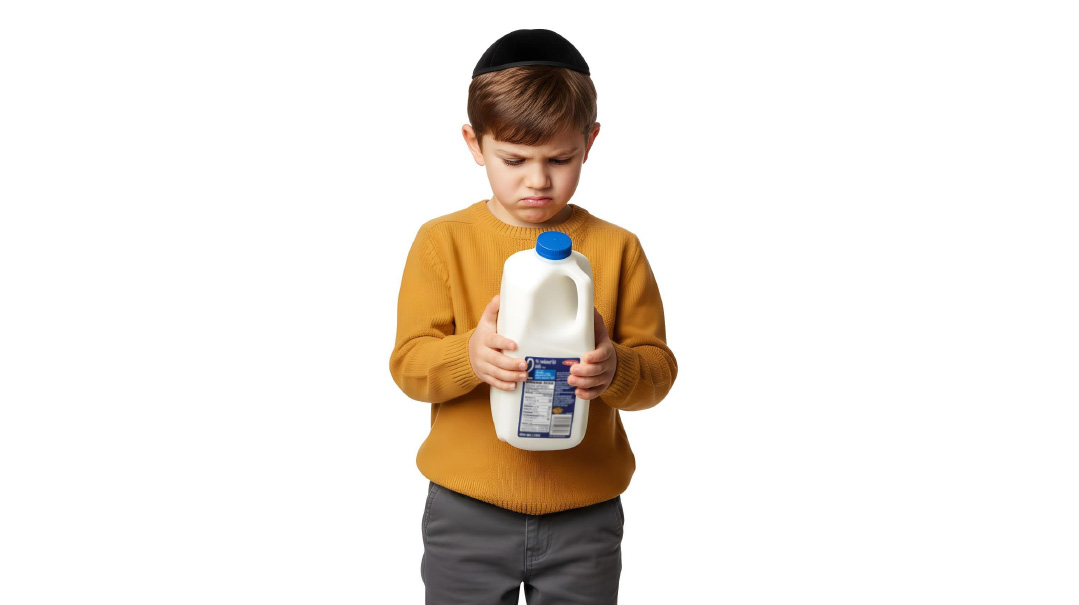The Masks We Wear

I see it in the drunk boys, the girls with caked-on makeup, both desperate for attention, searching, wondering, yearning for something they themselves are unsure of

I
hate the candy, the hyperactive children, the stickiness. I hate the drunk boys, the sight and stench of vomit, the jumping on my car. I hate the cutesy themes, the matching costumes, the mirage that every family has it all together. I hate the way ten-year-old girls dress up as punks, hair streaked pink, black lips, popping bubble gum.
I hate Purim, this day of happiness, because when I look around, all I see is pain.
I see its gray tentacles as soon as Megillah reading begins. The pain.
I see it as the 16-year-old turns away from her mother, snubbing her with a shrug of the shoulder, leaving Mom bewildered as to what she did wrong.
My heart wrenches when the woman next to me, the married aunt of six years, places her niece on her lap, because hers is empty of children.
I notice the girl who didn’t show up this year, and I see her family casting around, hoping nobody else notices the absence, although of course everybody does.
But it’s Purim, it’s a mitzvah to be happy, so I turn away from the pain. Focus, it’s Purim, listen to the Megillah. And as I shift my attention to the words, I hear the haunting tune of Eichah.
“Kaasher avadeti, avadeti…” It is a tragic story, isn’t it, with Esther’s fear that she’s losing not only her Olam Hazeh, but her Olam Haba, as well, for the sake of Klal Yisrael. At the end of the story, the curtain closes, and we can all go home, echoes of “Shoshanas Yaakov” ringing in our ears. But the megillah of Esther didn’t actually end happily for Esther herself. She lived a life of tragedy, of personal pain and loss. On Purim, I see Esther’s pain everywhere.
I see it in the drunk boys, the girls with caked-on makeup, both desperate for attention, searching, wondering, yearning for something they themselves are unsure of.
There is pain, so much pain, leaking through cracks of painted-on happiness. Perhaps there’s even an inverse proportion: The more the layers, the deeper the pain runs?
But I have to prepare a cutesy theme, have to dress up my kids and deliver mishloach manos, and another, and another, so we too can proclaim to the world that we’re doing just fine, thanks. We march through the neighborhood to the cheers and echoes of laughter, a jarring chuckle that irks me, rings like a clanging, cacophonous sound. I mute myself to the jangle, focus on my children, on their happiness, which lasts as long as it takes to consume a taffy.
It seems to me that the adult version of Purim is just as transitory, just as illusory, as the childlike version.
Later, I’m shoved into a corner of a too-crowded seudah. “There’s so much pain everywhere I look,” I moan to a friend, raising my voice (but not too loud, lest someone accuse me of not being happy on Purim… it’s a mitzvah, didn’t you know?) to compete with the sounds of glass bottles breaking, men puking. There’s disposable cutlery splayed about, unidentifiable liquids coloring the floor.
“And isn’t that the exact message of Purim?” she rejoins. I grow annoyed, thinking a mussar schmooze is shortly to follow. Right now, I want to wallow, I want to sit in my pity party of pain, feeling everyone’s and no one’s suffering. I don’t want to be spiritual, I don’t want a solution just yet.
(Excerpted from Family First, Issue 580)
Oops! We could not locate your form.













